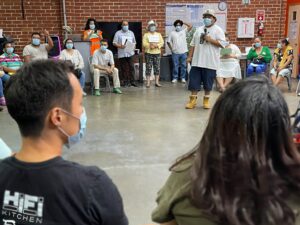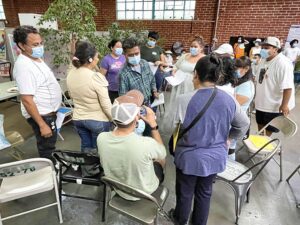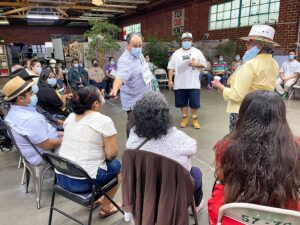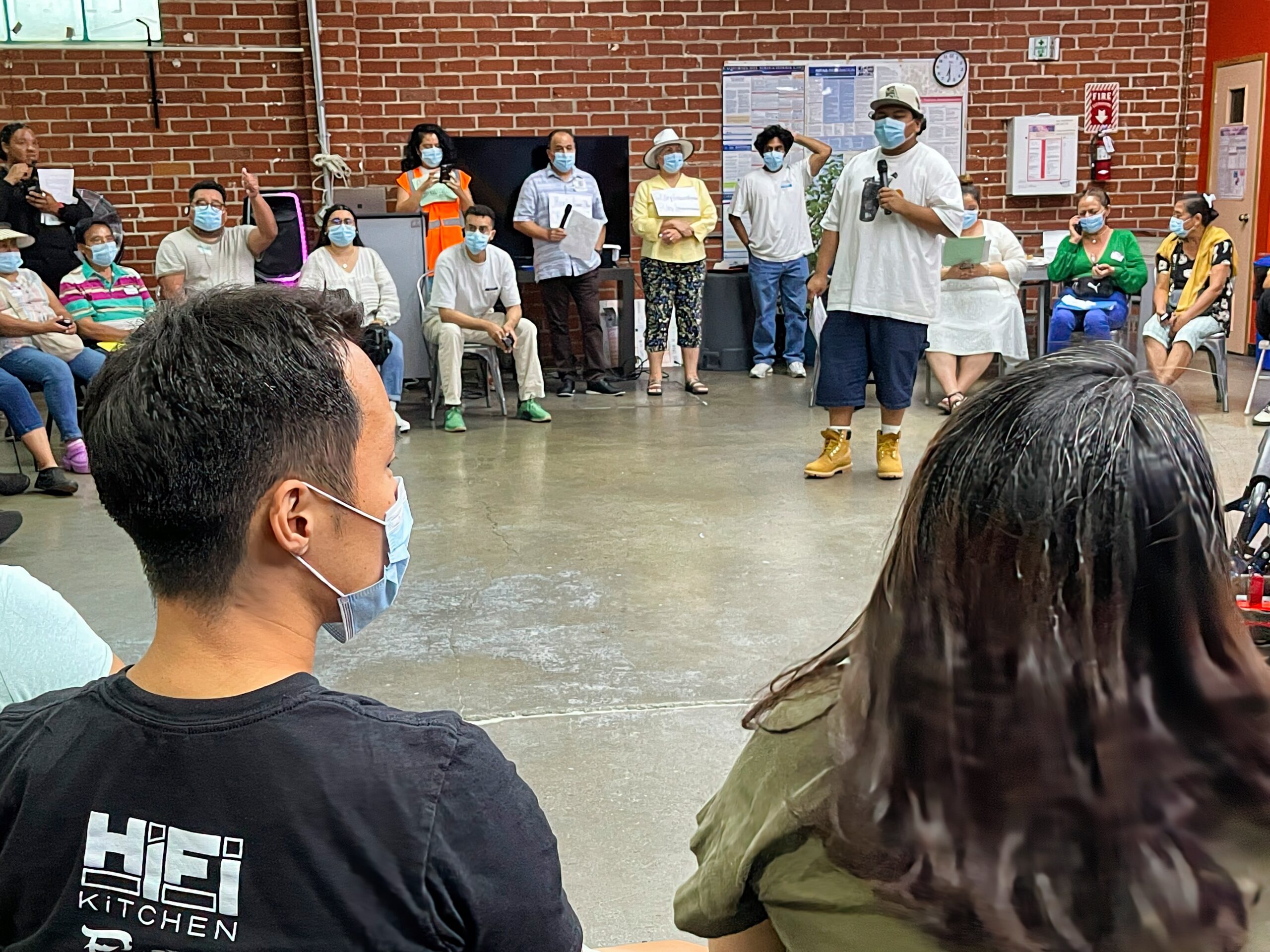
On Thursday evening, September 5, SAJE hosted a community discussion on safety and policing on LA Metro. The event, co-presented with the ACLU of Southern California, was part of our Esceuelita series, which looks at issues of racial justice and economic equity in Los Angeles. The series is open to the general public; registration is required. Previous Escuelitas have focused on topics including the gondola proposed for Dodger Stadium and the Graffiti Towers, an abandoned luxury condo project in downtown Los Angeles.
Safety on LA Metro has been a big issue in the media over the past few years. The agency has historically spent hundreds of millions of dollars on contracts with the Los Angeles Police Department and Los Angeles Sheriff’s Department to enforce their code of conduct and patrol stations, but riders have reported not feeling safe. LA Metro is now moving forward to establish its own in-house police force, the Transit Community Public Safety Department.
But does policing help riders feel safe? This was the central question of the Escuelita, which began with a presentation on how policing is often a knee-jerk response to safety issues that not only isn’t effective, but does more harm than good. It also pointed out how fare enforcement is used as a way to justify policing, even though, paradoxically, a huge portion of fares collected–almost 75 percent—is used to pay for police contracts. (The majority of the LA Metro budget is funded by sales tax and federal and state grants.)
 “We need to create a new common sense about what keeps us safe,” said civil rights attorney Sankara Asiyahola. He pointed out that safety on LA Metro is often about infrastructure, not police—adequate bus shelters to protect riders from heat, well-maintained sidewalks and crosswalks that make it safe to walk to the bus, or well-lit subway stations where people can see each other and their surroundings, for example.
“We need to create a new common sense about what keeps us safe,” said civil rights attorney Sankara Asiyahola. He pointed out that safety on LA Metro is often about infrastructure, not police—adequate bus shelters to protect riders from heat, well-maintained sidewalks and crosswalks that make it safe to walk to the bus, or well-lit subway stations where people can see each other and their surroundings, for example.
The presentation was followed by a theater workshop using techniques innovated by Brazilian theater director Augusto Boal during the 1970s. Boal’s Forum theater creates dialogue between actors and audience, with the audience invited to help shape the performance’s narrative and action as it unfolds. The SAJE workshop explored different public safety scenarios on the LA Metro system to brainstorm alternative responses to policing. Participants acted out a challenging situation involving a police officer attempting to remove an unhoused rider from a subway platform, stopping at key moments to consider potential interventions beyond arrest or expulsion.

